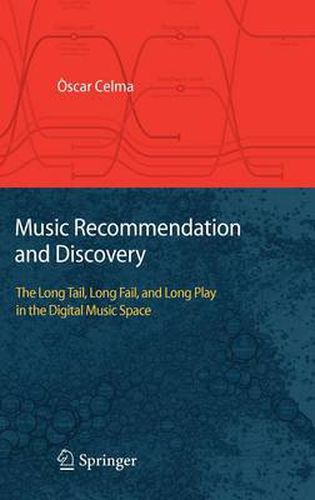Readings Newsletter
Become a Readings Member to make your shopping experience even easier.
Sign in or sign up for free!
You’re not far away from qualifying for FREE standard shipping within Australia
You’ve qualified for FREE standard shipping within Australia
The cart is loading…






This title is printed to order. This book may have been self-published. If so, we cannot guarantee the quality of the content. In the main most books will have gone through the editing process however some may not. We therefore suggest that you be aware of this before ordering this book. If in doubt check either the author or publisher’s details as we are unable to accept any returns unless they are faulty. Please contact us if you have any questions.
In the last 15 years we have seen a major transformation in the world of music. - sicians use inexpensive personal computers instead of expensive recording studios to record, mix and engineer music. Musicians use the Internet to distribute their - sic for free instead of spending large amounts of money creating CDs, hiring trucks and shipping them to hundreds of record stores. As the cost to create and distribute recorded music has dropped, the amount of available music has grown dramatically. Twenty years ago a typical record store would have music by less than ten thousand artists, while today online music stores have music catalogs by nearly a million artists. While the amount of new music has grown, some of the traditional ways of ?nding music have diminished. Thirty years ago, the local radio DJ was a music tastemaker, ?nding new and interesting music for the local radio audience. Now - dio shows are programmed by large corporations that create playlists drawn from a limited pool of tracks. Similarly, record stores have been replaced by big box reta- ers that have ever-shrinking music departments. In the past, you could always ask the owner of the record store for music recommendations. You would learn what was new, what was good and what was selling. Now, however, you can no longer expect that the teenager behind the cash register will be an expert in new music, or even be someone who listens to music at all.
$9.00 standard shipping within Australia
FREE standard shipping within Australia for orders over $100.00
Express & International shipping calculated at checkout
This title is printed to order. This book may have been self-published. If so, we cannot guarantee the quality of the content. In the main most books will have gone through the editing process however some may not. We therefore suggest that you be aware of this before ordering this book. If in doubt check either the author or publisher’s details as we are unable to accept any returns unless they are faulty. Please contact us if you have any questions.
In the last 15 years we have seen a major transformation in the world of music. - sicians use inexpensive personal computers instead of expensive recording studios to record, mix and engineer music. Musicians use the Internet to distribute their - sic for free instead of spending large amounts of money creating CDs, hiring trucks and shipping them to hundreds of record stores. As the cost to create and distribute recorded music has dropped, the amount of available music has grown dramatically. Twenty years ago a typical record store would have music by less than ten thousand artists, while today online music stores have music catalogs by nearly a million artists. While the amount of new music has grown, some of the traditional ways of ?nding music have diminished. Thirty years ago, the local radio DJ was a music tastemaker, ?nding new and interesting music for the local radio audience. Now - dio shows are programmed by large corporations that create playlists drawn from a limited pool of tracks. Similarly, record stores have been replaced by big box reta- ers that have ever-shrinking music departments. In the past, you could always ask the owner of the record store for music recommendations. You would learn what was new, what was good and what was selling. Now, however, you can no longer expect that the teenager behind the cash register will be an expert in new music, or even be someone who listens to music at all.